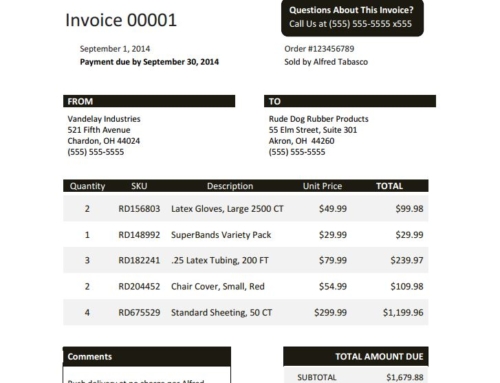Business trade references play an important role in creating an accurate picture of a company’s payment practices and they can sometimes be your most powerful and valuable source of information when it comes to determining customer creditworthiness. However, just because a business has a credit reference to offer, doesn’t necessarily mean it’s a good one. Here’s how to spot the difference between a good and bad trade reference.
Tired of manually tracking follow-ups using spreadsheets? Try Lockstep Inbox, our accounting Inbox that will allow you to better manage customer communications in minutes.
One good indicator of the difference between a good and bad trade reference is where it is coming from. If the business is able to provide a credit reference from within the same industry, that is a good indicator of how quickly you will get paid. If they are providing a reference from outside the industry, such as their electric company, it may not be as indicative of their payment history, since you must pay the electric bill to keep it on. These of course are not the only types of businesses that can be a valuable credit reference, below are a few other examples of both good and bad sources of information.
EXAMPLES OF GOOD BUSINESS TRADE REFERENCES
- Accountant / CPA
- Freight, trucking, or local delivery service provider
- Landscaping company
- Lawyer
- Advertising
- Payroll services
- Marketing service provider
- Software developer
- Supplier of parts/materials
- Uniform supplier
- Website design/host company
EXAMPLES OF BAD BUSINESS TRADE REFERENCES
- A bank
- Insurance company
- Real estate company
- Utilities company
WHAT TO ASK BUSINESS TRADE REFERENCES DURING FOLLOW UP
Finally, just because a “good” trade reference has been provided, doesn’t mean you shouldn’t follow up. Many companies ask for them and then they don’t take this next step…so what’s the point of having them? There are many questions you can ask when you follow up with business credit references, for example:
- How long has Company A had an open account with you?
- What is their credit limit with you?
- How many times have they been late? How late?
- Is there a seasonal pattern to their payment behaviors?
Both a credit application and business trade references should be a part of your overall credit and collection policy and action plan; a document that outlines the rules, regulations, and expectations of not only your customers, but of your staff as well. They can play an extremely important role in protecting your business from unnecessary credit risk while allowing you to reap the benefits of selling to the right customers on credit.




